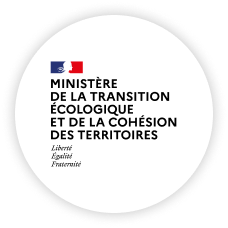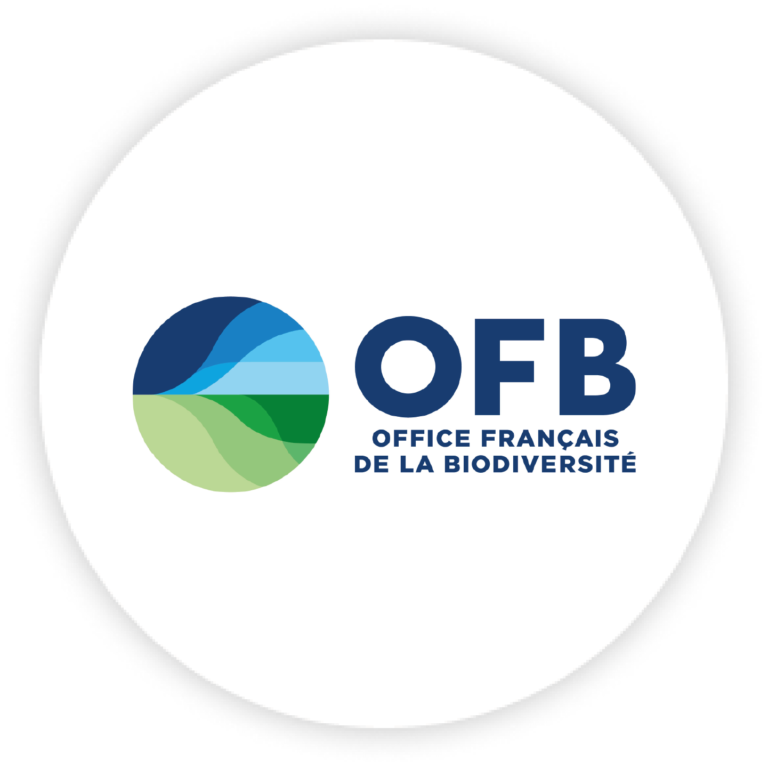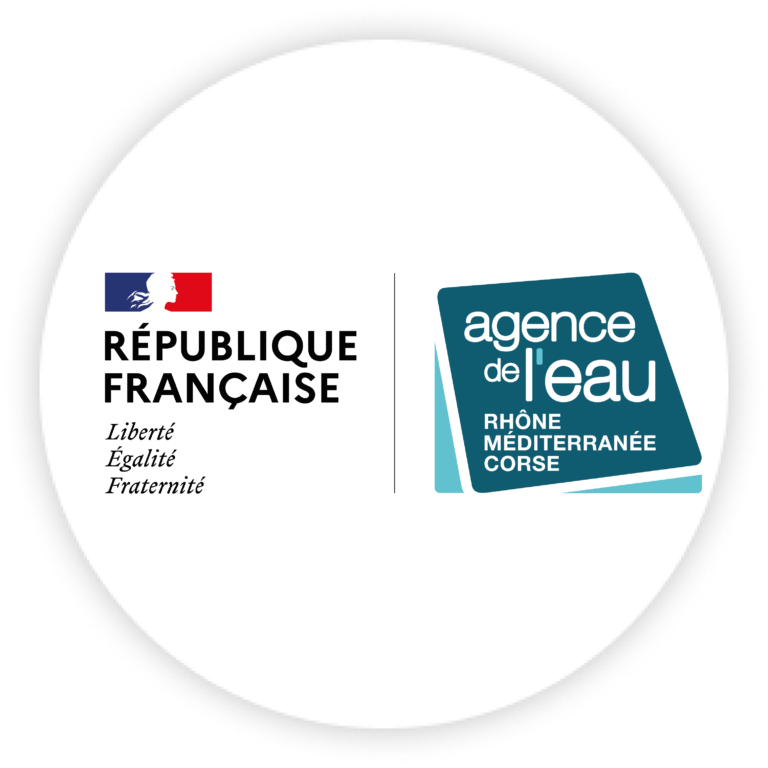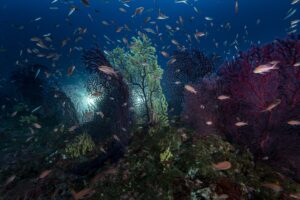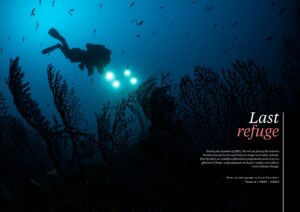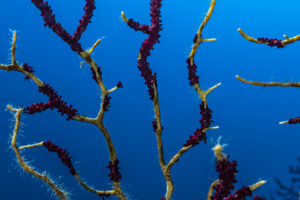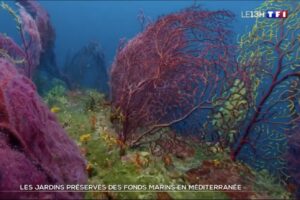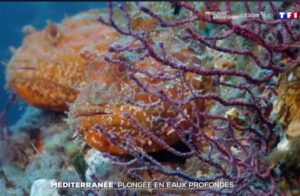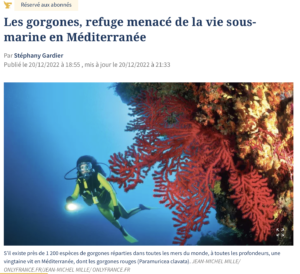L’arche de Noé des profondeurs, un avenir pour la biodiversité ?
Réchauffement climatique
Un programme scientifique de la Fondation 1 OCEAN pour comprendre et préserver les forêts animales.
Août 2022. Après un été particulièrement chaud, des plongeurs amateurs alertent sur une importante mortalité des gorgones en Méditerranée. Par endroit, les populations ont été complètement décimées entre 0 et 30 mètres de profondeur. En réaction à cet événement, la Fondation 1 OCEAN et l’UNESCO décident de lancer un grand programme d’exploration scientifique. L’objectif : comprendre comment, dans les profondeurs, les gorgones et leur écosystème pourraient survivre.
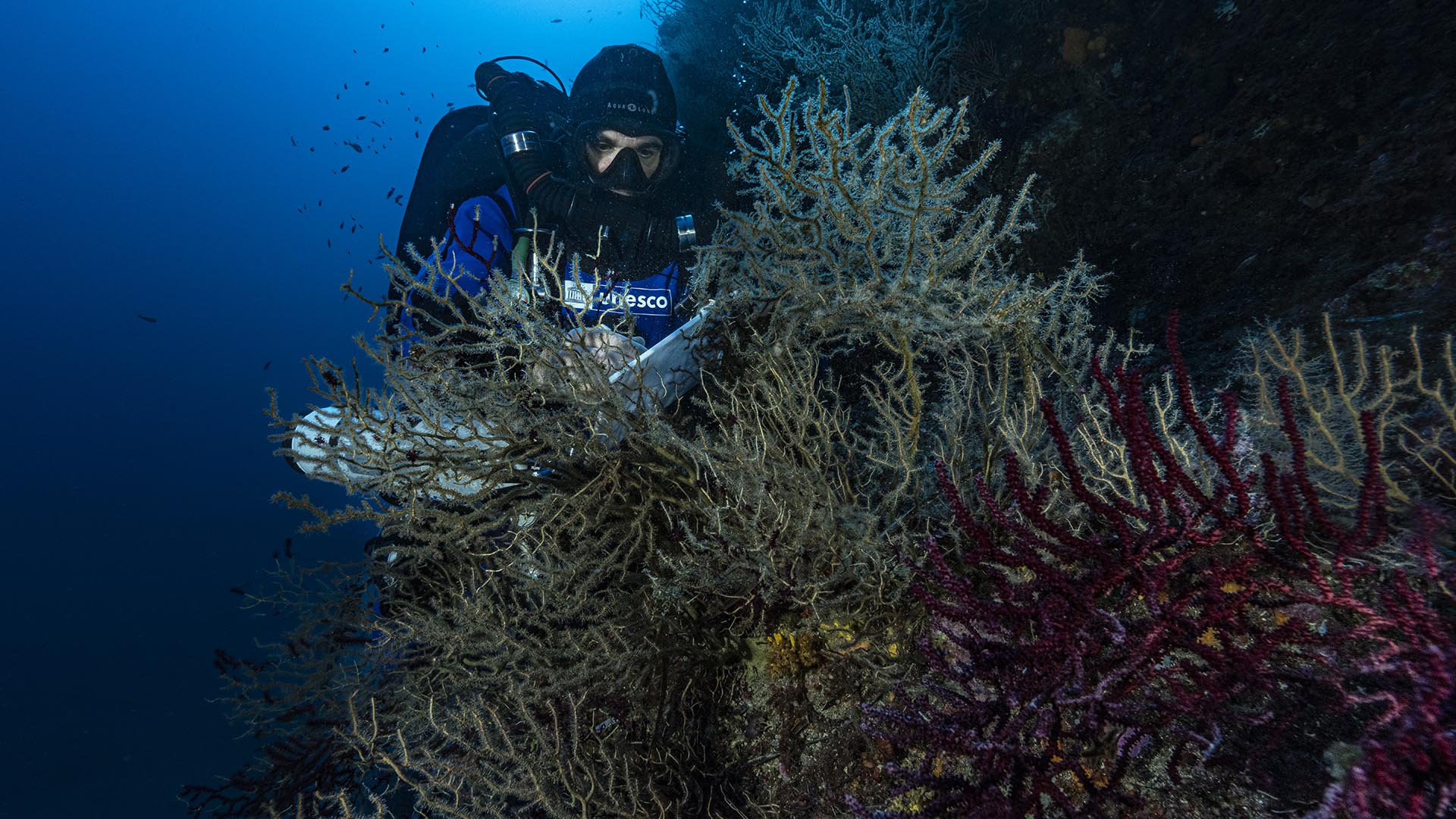






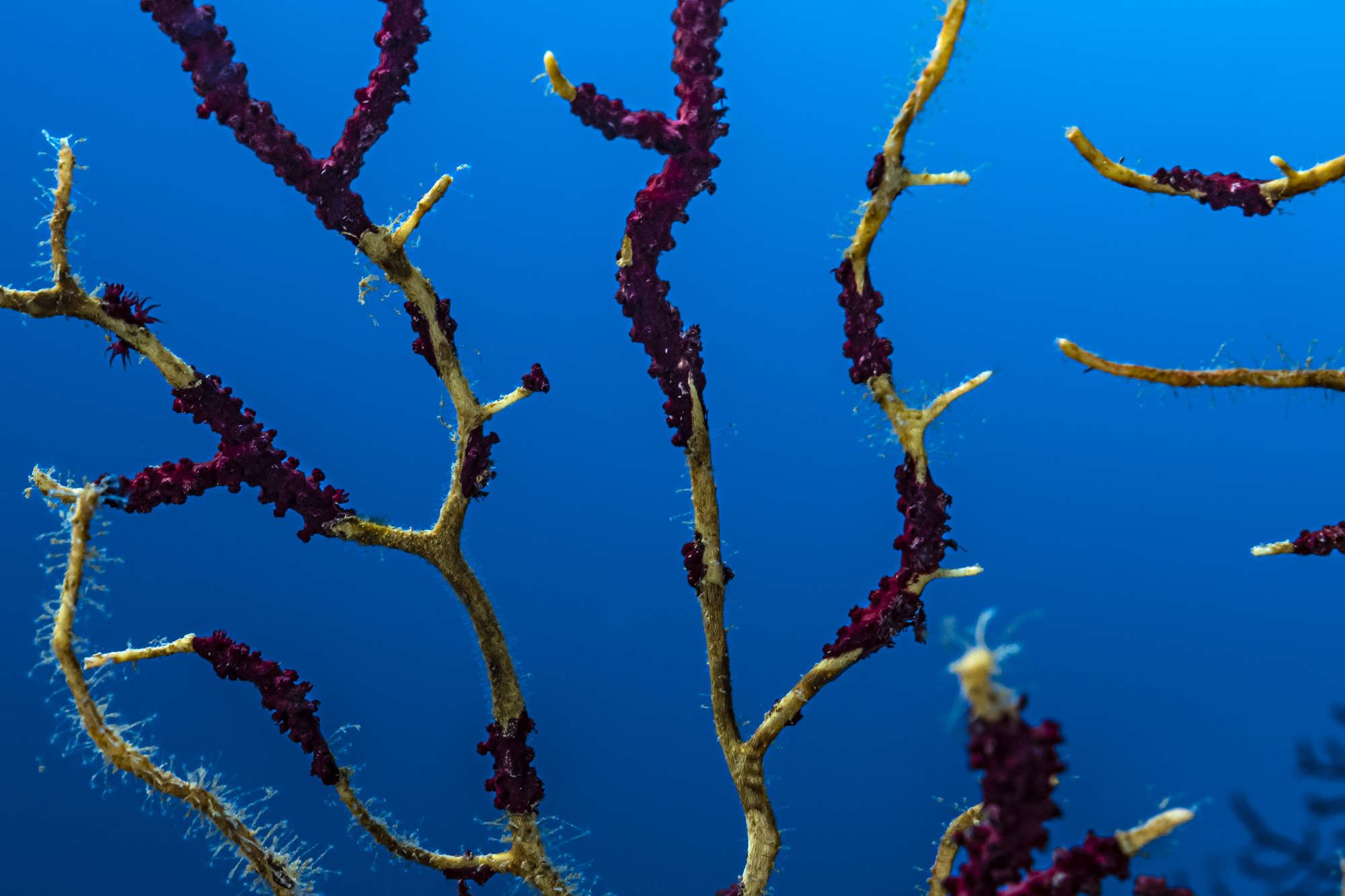


Les gorgones rouges (Paramuricea clavata) sont des animaux endémiques et emblématiques de la Méditerranée. Elles sont de proches parents des coraux de récifs mais à leur différence, elles peuvent vivre à de grandes profondeurs, on peut en effet les retrouver jusqu’à 100 mètres de profondeur. A la manière d’arbres sous-marins, les gorgones forment de véritables forêts animales. Leur structure en trois dimensions confère à ces organismes sessiles un rôle de garde-manger, de nurserie et d’habitat protecteur dont dépendent de nombreuses espèces.
Un Constat Alarmant
Au cours de l’été 2022, les gorgones du bassin méditerranéen occidental ont connu un épisode de mortalité massif lié à des températures anormalement élevées. Sur certains sites, le constat est alarmant : entre 0 et 30 mètres de profondeur, la quasi-totalité des gorgones sont mortes en seulement quelques jours. Si l’on en croit les
projections climatiques, ces perturbations thermiques devraient devenir de plus en plus fréquentes. À court terme, les populations de gorgones de Méditerranée pourraient être gravement menacées et avec elles, tout l’écosystème associé.
“La mortalité des gorgones est probablement le dernier signal d’alarme concernant la crise écologique que nous traversons”
Lorenzo BRAMANTI, Chargé de recherche CNRS – LECOB.
“La situation des gorgones en Méditerranée est à l’image de ce qu’il se passe sur l’ensemble de notre planète. A l’instar de la forêt amazonienne, les forêts animales sous-marines disparaissent peu à peu, avec des conséquences tout aussi dramatiques. Pour des milliers d’êtres vivants, ces forêts sont à la fois un habitat protecteur et un garde-manger et leur disparition conduit inévitablement à une perte de biodiversité.” – Alexis ROSENFELD, Explorateur et photographe des missions 1 OCEAN.
Face à l’urgence écologique, un programme d’exploration scientifique
Face à l’urgence écologique, l’UNESCO et la Fondation 1 OCEAN ont lancé un programme d’exploration scientifique en partenariat avec le CNRS et l’unité de recherche LECOB de l’Observatoire Océanologique de Banyuls-sur-Mer : “L’arche de Noé des profondeurs, un avenir pour la biodiversité ?” En effet, au-delà d’une certaine profondeur, les gorgones semblent préservées, comme si elles avaient été protégées dans une capsule thermique. Pour les scientifiques, ce constat est un véritable motif d’espoir : moins impactées par les anomalies de températures, les profondeurs pourraient devenir de véritables refuges climatiques pour les forêts animales.
Lancé en octobre 2022, ce programme, qui doit durer deux ans, concerne quatre pays européens (France, Italie, Monaco, Espagne) a comme directeur scientifique Lorenzo BRAMANTI, spécialiste des forêts animales. Ce programme s’appuiera notamment sur les épaves de Méditerranée, formidables laboratoires naturels pour l’étude des forêts animales. Pour assister les chercheurs, Lily, le drone sous-marin de la Fondation 1 OCEAN, est chargée de recueillir des données en profondeur et d’effectuer des prélèvements pour les analyses génétiques. L’objectif sera de définir si les habitats profonds peuvent accueillir des forêts animales démographiquement autosuffisantes et ainsi devenir un ultime coffre-fort biologique.
Cette mission a été réalisée avec le soutien de nos partenaires.
Vous souhaitez vous engager à nos côtés ?







